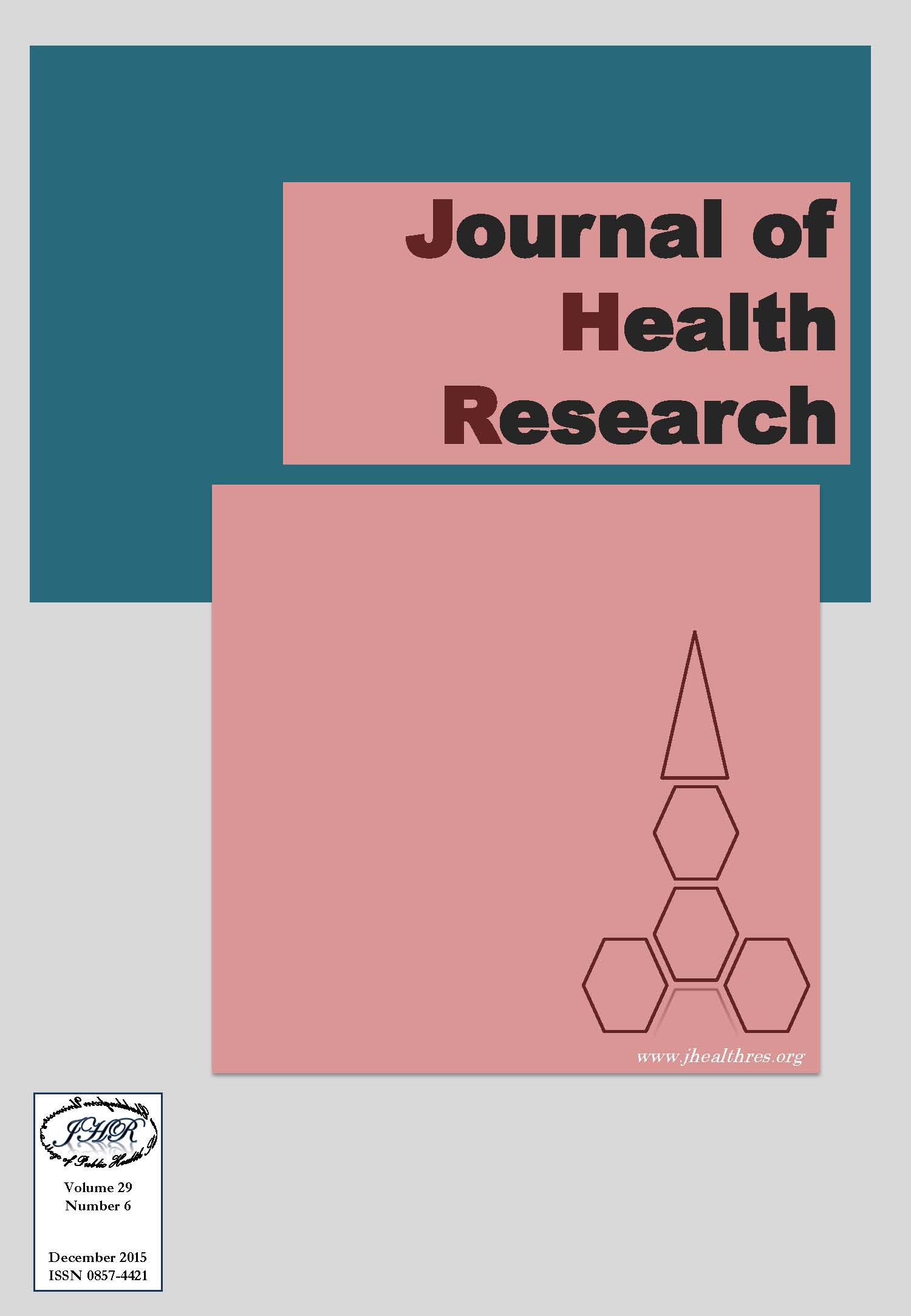Psychosocial Issues and Diabetes Self-Management among Elderly Diabetes Patients with Poor Glycaemic Control in Malaysia
Keywords:
Type 2 diabetes, Quality of life, Social support, Distress level, Diabetes self-care management, Elderly, MalaysiaAbstract
Background: Type 2 diabetes is a major global public health issue. For example, it significantly affects health-related quality of life, social support, and distress level among the elderly.
Methods: The purpose of this study was to determine the health- related quality of life and to examine the relationship between social support, distress level, and diabetes self-management towards quality of life among the diabetic elderly who had poor glycaemic control. Two hundred sixty-one respondents were recruited from three hospitals in Malaysia, from March 2013 until March 2014. Data were obtained by self-administered questionnaire and clinical characteristics were gathered from patient’s records.
Results: The respondents had a good quality of life based on a mean of physical component scores-12 which was 68.25 (SD = 8.42), and the mental component scores-12 which was 67.76 (SD = 8.39). Social support gave a significant positive affect towards quality of life (B = 2.023, p< 0.05). However, distress (B= -2.620, p<0.05) and diabetes self-management (B= -1.051, p<0.05) gave significant negative affects towards quality of life. The respondents with good quality of life had better social support and lower distress level. Even so, respondents with good quality of life had lower self-management, that is, they do not appear to have managed their diabetes optimally. Meanwhile, the respondents with good quality of life had poor/ bad / lower/ diabetes self-management (they do not manage themselves (related to diabetes management) appropriately).
Conclusions: The findings indicate that more research is needed on how to improve social support and distress level in elderly diabetes type 2 patients, in order to further improve their quality of life. Further research on the role of diabetes self-management on quality of life is also needed in this group.






